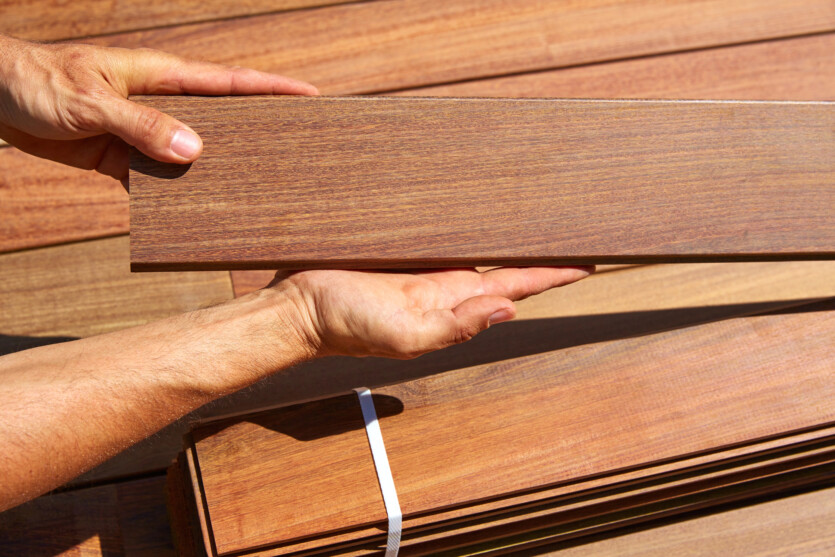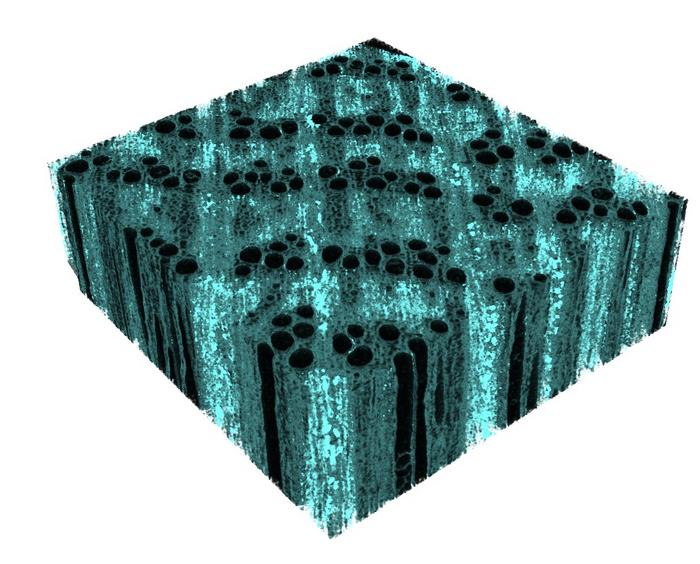
American researchers have significantly enhanced the strength of wood with the help of solid nanoscale materials.
The idea of scientists from Florida Atlantic University, University of Miami and Oak Ridge National Laboratory was to chemically improve lignocellulose is a plant dry matter consisting of carbohydrate polymers (cellulose, hemicellulose) and aromatic polymer (lignin). The world produces 181.5 billion tons of wood annually, making it a promising renewable resource.
is a plant dry matter consisting of carbohydrate polymers (cellulose, hemicellulose) and aromatic polymer (lignin). The world produces 181.5 billion tons of wood annually, making it a promising renewable resource.
«By looking at wood at different levels — from microscopic structures inside cell walls to the whole piece of wood — we were able to learn more about how to chemically enhance natural materials for use», — explains the senior author of the study Vivian Merk.
The researchers aimed to test whether the addition of ultra-strong nanoscale minerals could make wood even stronger without increasing its weight, production costs, or environmental impact. After studying hardwoods, the scientists chose red oak.
The scientists managed to obtain ferrihydrite — a natural mineral of iron oxide. To do this, they combined ferrous nitrate and potassium hydroxide. The resulting mineral had to be injected into the internal structure of the wood. As a result, the wood became even stronger and gained almost no additional weight.

Despite the increased strength of the wood’s internal structure after treatment, its overall bending or fracture behavior has not changed significantly. The researchers claim that such an eco-friendly material can be an alternative to steel and concrete in construction of buildings, furniture, bridges, and flooring.
To thoroughly analyze the structure of the wood, the research team used atomic force microscopy, which allowed them to check it at a very fine level stiffness and elasticity. They also used another method called AM-FM to make precise observations of how mineral treatment changes the internal structure of wood.
«By strengthening natural wood using environmentally friendly and cost-effective methods, our researchers are laying the groundwork for a new generation of biomaterials that could potentially replace traditional materials such as steel and concrete in building structures», — emphasized Dean of the College of Engineering and Computer Science Stella Batalama.
The results of the study were published in the journal ACS Applied Materials and Interfaces
Source: Interesting Engineering

Spelling error report
The following text will be sent to our editors: